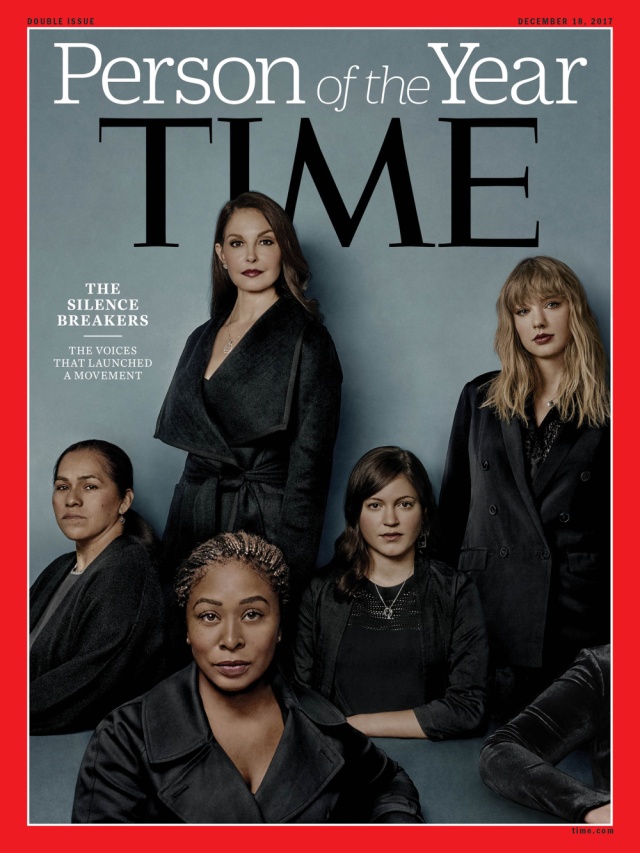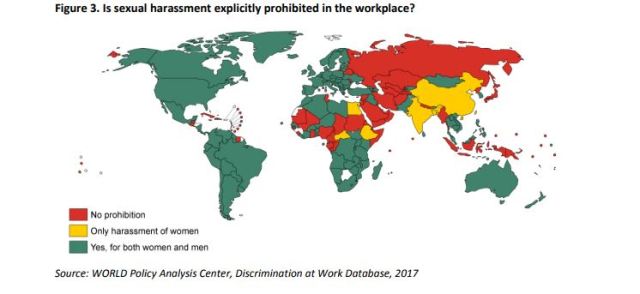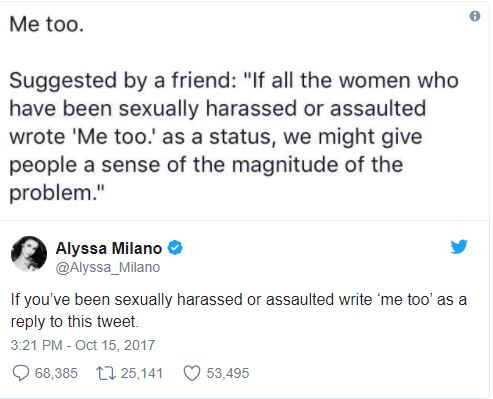
Introduction
It is a safe assumption that everyone here has caught wind of the growing number of celebrities coming forth with stories of sexual harassment and assault. While it is a good thing for these transgressions to finally come to light, it is also imperative to remember that sexual harassment in the workplace is global issue and one that is not limited to a certain occupation.
Defining Sexual Harassment in the Workplace
It is beneficial to be able to both define and categorize sexual harassment. The general definition of sexual harassment is the various inappropriate behaviors that don’t belong at work such as, lewd comments, gestures, and looks; unwanted touching or commentary on appearance or attractiveness; and threats or offers of sexual intercourse. This seemed to be uniform in various countries workplaces’ conducts. Another general, international agreement is that there are different classifications of sexual harassment. Two main types come up, which are quid pro quo and hostile. Quid pro quo involves a beneficial favor in exchange for a sexual act. A hostile work environment is created when the threat of negative consequences is given, such as, demotion, loss of benefits, and firing, in the event that a sexual advance is turned down.
Statistics
- Marla H. Kohlman gives important statistics related to sexual harassment at work and reporting. She not only looks the singular, gender statistics, but also intersecting factors that have a toll on the data. She concludes that married women report more than single women. White women report more than women of color. Men in higher positions report more often than men in low positions of prestige, the exact opposite of all women.
- Over three-quarters of countries have taken an approach to prohibiting discrimination in two important aspects of work related to women’s advancement: vocational training at the workplace, and promotions and/or demotions.

The #MeToo Movement and Gaining Global Awareness
The hashtag #MeToo was created in a tweet by actress Alyssa Milano, advocating for women to identify themselves as sexual harassment/assault victims by simply tweeting the hashtag. Some responding tweets came with only the hashtag. While others shared stories of their terrible encounters. Though, this originated from an American actress, derivatives of the trend have spread throughout multiple sites and countries along with influences.

- France: Inspired by the #MeToo trend, journalist, Sandra Miller coined the hashtag #BalanceTonPorc, which translates to squeal on your pig. It quickly ended up in the most trended in France and Worldwide.
- Canada: Kathryn Borel took on the task of exposing why few people report their workplaces experiences involving sexual harassment. Her story about her old boss not receiving any disciplinary action from his inappropriate behavior. Exposing him publicly brought about sexual assault charges for him. Since then her story has gone viral, inspiring more women to share their stories.
- China: After a negative response from a newspaper to #MeToo, claiming that sexual harassment is a “Western problem”. Chinese women rose to defend the need for feminism and acknowledged the growing numbers.
- Nigeria: The spread of the #MeToo hashtag alerted many women in Nigeria that sexual harassment shouldn’t be normalized as it had become there. Sexual comments and advances were a frequent occurrence. They now know they can add their voices to the movement and advocate for change.
Conclusion
No one should ever have to feel unsafe at their place of employment. Currently, there are many people who have experienced this kind of degradation at work and afraid to come forward. There are many that will come to know this feeling unless we start recognizing this behavior and put an end to the normalization of it. Passiveness can no longer be an option, we all must lend a hand to end this dehumanizing, manipulative behavior to make safer workplaces.
Sources:
Khomami, Nadia. “#MeToo: how a hashtag became a rallying cry against sexual harassment.” The Guardian, Guardian News and Media, 20 Oct. 2017, http://www.theguardian.com/world/2017/oct/20/women-worldwide-use-hashtag-metoo-against-sexual-harassment.
Kohlman, Marla H. “Person Or Position?: The Demographics of Sexual Harassment in the Workplace.” Equal Opportunities International 23.3-5 (2004): 143-61. Web.
Report of the Director-General to the International Labour Conference 96th Session. (2007). Equality at work:
Tackling the challenges. Global Report under the follow-up to the ILO Declaration on Fundamental Principles and
Rights at Work. Retrieved from: http://www.ilo.org/public/portugue/region/eurpro/lisbon/pdf/equality_07.pdf at
25.
“Sexual harassment at work is a global problem. Now, the world is finally talking about it.” USA Today, Gannett Satellite Information Network, 23 Oct. 2017, http://www.usatoday.com/story/news/world/2017/10/23/sexual-harassment-work-global-problem-now-world-finally-talking-it/789723001/.
Singh, Trishala. “Prevention of Sexual Harassment of Women in the Workplace: Seeking Gender Equality at Work in India.” Journal of International Women’s Studies 18.1 (2016): 104-13. ProQuest. Web.
Image Credit:
Time.com/time-person-of-the-year-2017-silence-breakers/

 UM-D Women's & Gender Studies
UM-D Women's & Gender Studies
Hi Autumn, I enjoyed reading your blog , I have been researching the Harvey Weinstein and #metoo viral tweet for another class and it is so fascinating and important that social media movements are able to propel these kinds of shifts in very necessary directions.
Furthermore I liked how you broke down information for different countries taking part in the movement and altering it to their particular areas needs.
Thank you for posting a current event on a women’s movement. There has been a lot of news coverage to absorb since the ‘me too’ response started and a poignant point in the power of social media outreach.
Awesome topic! So relevant right now. I’m glad you talked about the different classifications of workplace harassment. The statistics you gave were super interesting.
While actress Alyssa Milano did kickstart the social media #metoo movement, a social activist named Tarana Burke actually started using “me too” in this context more than a decade ago. It’s unfortunate that she doesn’t get more credit for all the work she has done.
Thank you. I have seen lots of rightful outrage at the lack of credit for Tarana Burke and I wanted to include that element as well, but I was almost at the word limit. Also, I didn’t trust myself to not rant on about intersectional feminism and deviate from the topic. :)
Pretty good post. I like the information from other countries. That was laid out very well. Maybe adding information or a link to sexual harassment policies from major corporations could help people understand what the rule of sexual harassment entail. In a lot of sexual harassment policies, it is not considered harassment until the victim says to stop or does not want the actions to continue. So it is important for the victims of sexual harassment to say something right away if they want to make a change in their workplace. Good post!
Well thought out post. I really feel that now more than ever, there needs to be action taken abut sexual harassment. It is almost as if people have erased from their minds the understanding of boundaries and personal space. I believe that this issue has roots in a collective mindset that feels the need to be in the private lives and business of other people. More than ever, people are coming out, especially women, who are telling of men who REFUSE to keep their hands to themselves and believe that they are entitled to invading the space of another person. As a society, we need to instill the need for boundaries and supporting people when they say “no”. I feel that we change changed our mindset to not speaking up for injustices and the is why this continues to go on…and it is a downright disgrace!
Autumn,
The discourse surrounding sexual harassment and the #metoo hashtag is so important right now as so much visibility have been given to it. I really think that your blog post and the information it provides is positively contributing to the discourse surrounding the topic. Although there are so many famous or wealthy people from developed countries getting coverage on their personal stories and are bringing more awareness to this very serious problem for women, it is important that women in undeveloped countries and women who are not covered in the news don’t go unrecognized as this is a problem that affects so many women around the world. It was really interesting to see the bullet points you provided on other countries and how those women have dealt with or acknowledged the problem of sexual harassment. I appreciated the information you provided, especially with this all being a very real and current event.
Autumn,
I’m very glad that someone decided to do this topic! I really enjoyed the way you wrote this piece; it was clear, easy to read and your format flowed great. The MeToo campaign was such a a movement that rocked the world by raising awareness to how big of an issue sexual assault really is. I wish that you talked about more of the media push back that the MeToo campaign received. I found it shocking that China felt that sexual assault is a “western” issue, especially with a population that high. I saw that the introducing image was of the Silence Breakers, they are so powerful as a whole and as individuals, I would have loved to see a small section just about their work and why it matter so much. Great job!